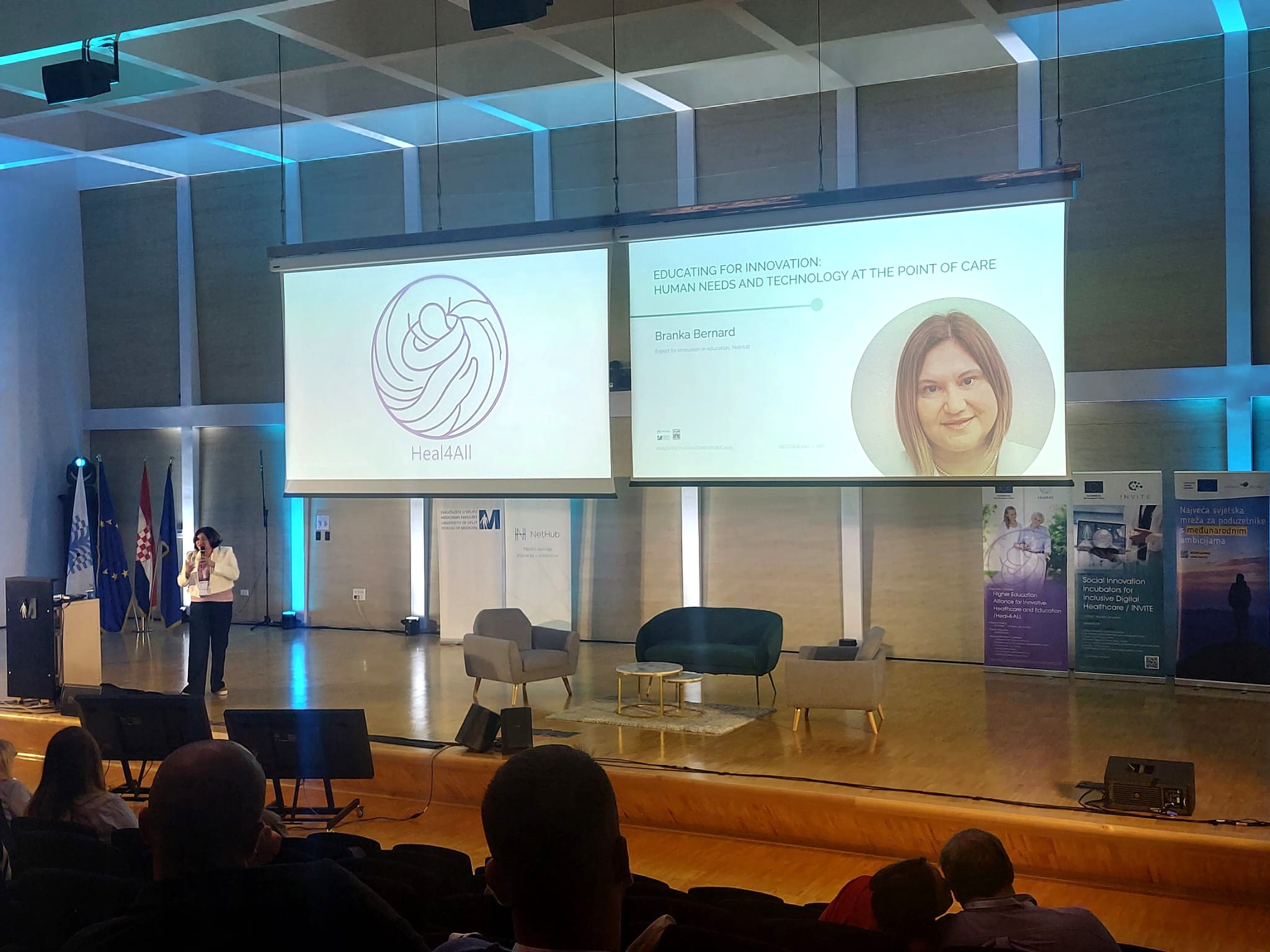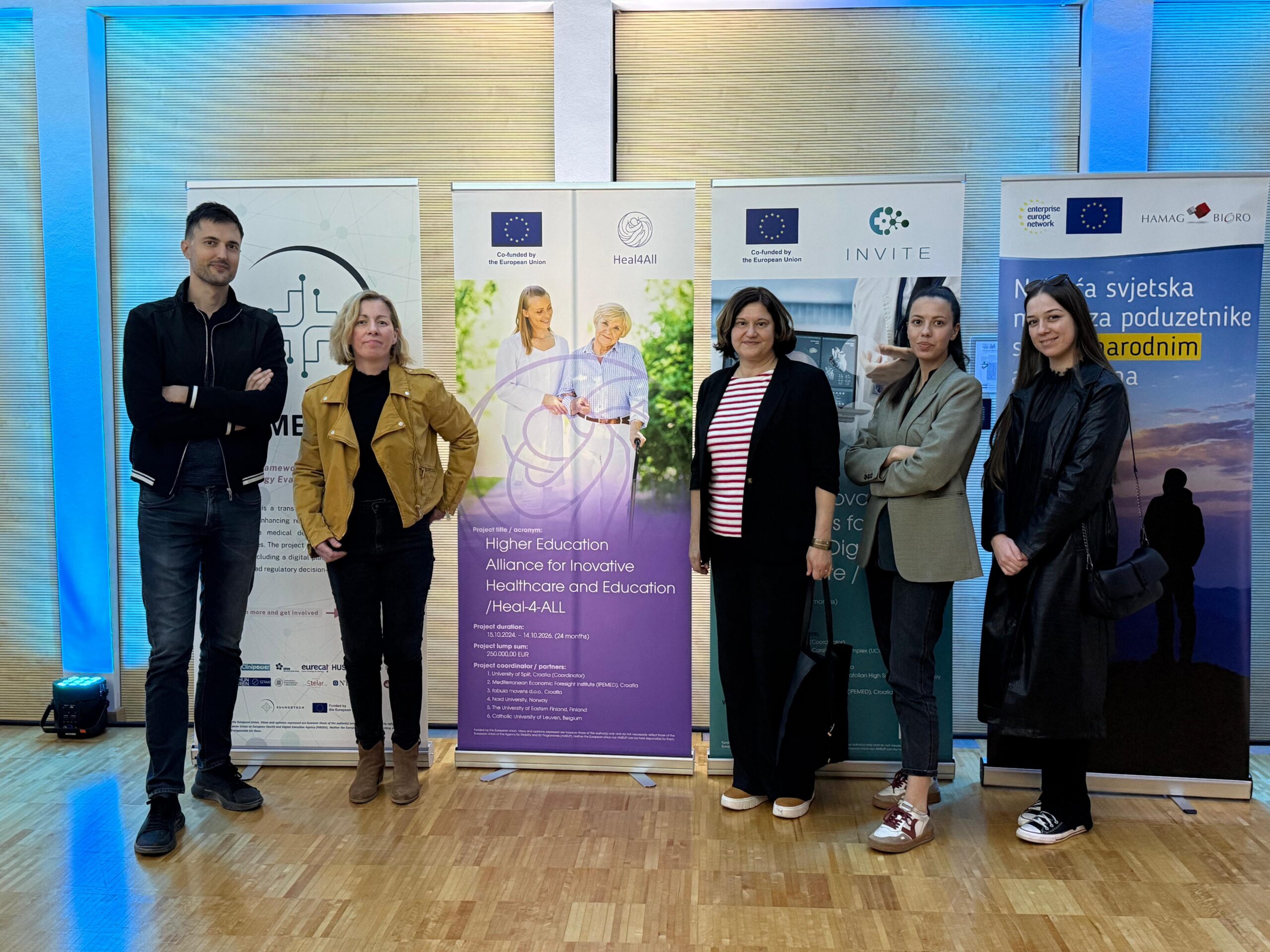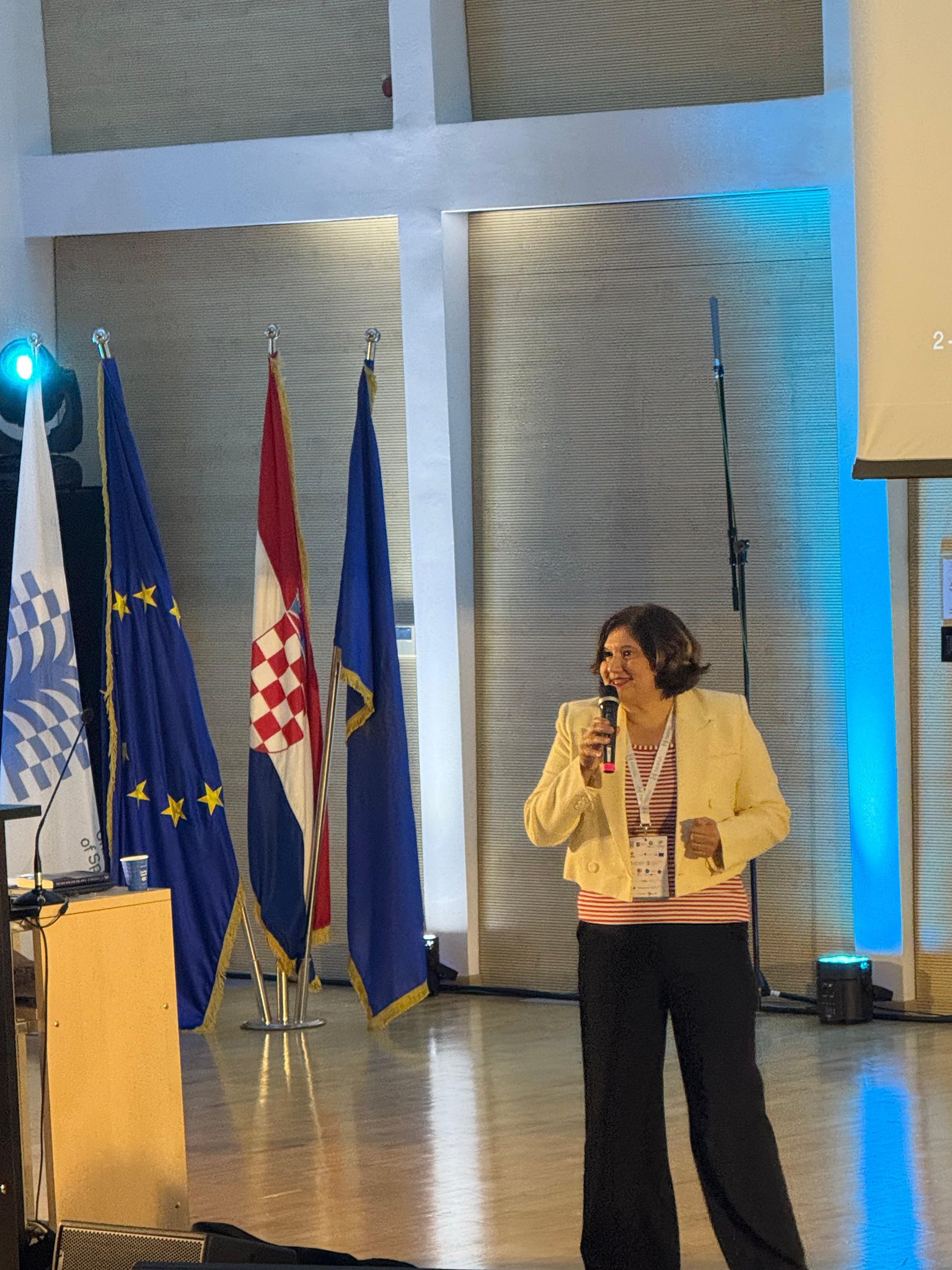Heal4All Showcases Innovative Educational Approach at Healthtech Adria Conference in Split



The Heal4All team took part in this year’s Healthtech Adria Conference at the University of Split School of Medicine, where experts and innovators from across Europe gathered to explore new ideas in healthcare technology.
Heal4All presented its work on education and care for older adults, showing how learning, empathy, and technology can work together to improve quality of life. Instead of focusing on gadgets or apps, the project shared its curriculum model that helps students and professionals understand the deeper aspects of ageing — dignity, meaning, and human connection.

During the presentation, the Heal4All team introduced new learning modules, and examples of how older people are directly involved in co-creating solutions. Through these activities, students and professionals learn not only about technology, but also about listening, empathy, and real-life challenges that older adults face every day. The presentation emphasized that technology creates real value only when it meets genuine human needs — enabling people to stay connected, independent, and respected in their communities.

Many visitors showed great interest in applying Heal4All’s approach within their own institutions — from universities and healthcare centers to innovation hubs and startups. These conversations opened the door to new collaborations, pilot programs, and knowledge exchanges that could extend the project’s impact across Europe and beyond.
Looking ahead, Heal4All continues to build strong bridges between education, healthcare, and technology, fostering a community of learning and innovation focused on the well-being of older adults. By connecting academic research, digital solutions, and compassionate care, the project is helping shape a future where technology and humanity grow together — creating smarter, kinder, and more inclusive healthcare systems.

To read more, please visit the official project website: HEAL4ALL
Funded by the European Union. Views and opinions expressed are however those of the author(s) only and do not necessarily reflect those of the European Union or the Agency for Mobility and EU Programmes (AMEUP). Neither the European Union nor AMEUP can be held responsible for them.






